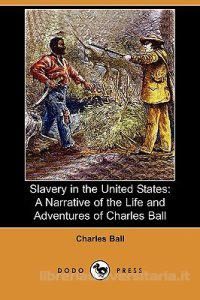
It’s officially Halloween and my birthday! Be safe and enjoy giving candy out to kiddos, if that is your thing. This week’s open threads will highlight authors of slave narratives. Usually the tales involve their attempts at escape or life in captivity.
The slave narrative is a type of literary work that is made up of the written accounts of enslaved Africans in Great Britain and its colonies, including the later United States,Canada, and Caribbean nations. Some six thousand former slaves from North America and the Caribbean gave accounts of their lives during the 18th and 19th centuries, with about 150 narratives published as separate books or pamphlets. In the U.S. during the Great Depression (1930’s), more than 2,300 additional oral histories on life during slavery were collected by writers sponsored and published by the Works Progress Administration (WPA) of President Franklin D. Roosevelt’s administration. Most of the 26 audio-recorded interviews are held by the Library of Congress.
Some of the earliest memoirs of captivity known in England and the British Isles were written by white Europeans and later Americans captured and sometimes enslaved in North Africa, usually by Barbary pirates. These were part of a broad category of “captivity narratives” by English-speaking Europeans. Beginning in the 18th century, these included accounts by colonists and American settlers in North America and the United States who were captured and held by Native Americans. Several well-known captivity narratives were published before the American Revolution, and they often followed forms established with the narratives of captivity in North Africa. Later North American accounts were by Americans captured by western tribes during 19th-century migrations.
For the Europeans and Americans, the division between captivity as slaves and as prisoners of war was not always clear. A broader name for the genre is “captivity literature”. Given the problem of international contemporary slavery in the 20th and 21st centuries, additional slave narratives are being written and published.
Charles Ball (1780 – ?) was an enslaved African-American from Maryland, best known for his account as a fugitive slave, The Life and Adventures of Charles Ball (1837). Charles Ball lived in Calvert county, Maryland, until about age four. After his mother died in the 1780’s, Charles and his other three siblings were all sold to separate purchasers.
In 1805 he was sold to a South Carolinian cotton planter, thus estranged from his wife and children who remained in Maryland. After several escapes and recaptures, he wrote his autobiography with the help of the white lawyer Isaac Fisher. Charles Ball was eventually married and had children and in 1805, he was sold to a Georgia trader without warning and was once again separated from his family. He eventually escaped from slavery and settled in Pennsylvania where he wrote his memoir.
Ball’s history/memoir is a fascinating realistic account of the life of slaves and slave-owners in the early 19th century, which he describes as “one long waste, barren desert, of cheerless, hopeless, lifeless slavery; to be varied only by the pangs of hunger, and the stings of the lash”. Recalling the brutal conditions in slave life, he describes the heartache of having family members sold away—as his mother and father were, and as he was separated from his wife and children, taken south chained to a line of other slaves. In one long account, Ball relates the story of a fellow slave who had been captured in Africa, and we learn of the horrific conditions on slave ships bound for the West. On this slave’s journey, he recounts that 1/3 of the slaves on the ship died during the passage to Charleston, South Carolina. Ball also provides detailed accounts of the environments he lived in the U.S., including the wide destruction of the arable land created by the over-planting of tobacco, and descriptions of other flora and fauna of the southern states; the terrible diet of slave life, with each given only a peck of dry corn each week, supplemented at times with a dried fish or bite of meat; the toil of slave life, with work from dawn to dusk much of the year, and with many slaves working with absolutely no clothes on their backs; of the differences between the lives of slaves and slave owners in the northern states of Maryland and Delaware, through the uplands and tidewater districts of Virginia, and into the deep south and the Carolinas, which he regarded with “the greatest dread;” suicide among slaves, which he claims was more common than is generally known–“What is life worth, amidst hunger, nakedness, and excessive toil,” Ball writes, “under the continuously uplifted lash?” (50); and how some slave owners and their family members were in fact kind and accommodating with slaves, while others—in fact, mostly slave overseers, one who Ball describes as “a tiger in human form” (54)–were brutal and cruel, wielding whips and other weapons. Ball also holds forth about the development of thecotton gin and how that invention affected slavery.
Ball also served the United States in the War of 1812. By 1813, he had enlisted in Commodore Joshua Barney’s Chesapeake Bay Flotilla and fought at the Battle of Bladensburgon August 24, 1814. An excerpt from his account of the battle, which was a resounding defeat for the Americans:
“I stood at my gun, until the Commodore was shot down, when he ordered us to retreat, as I was told by the officer who commanded our gun. If the militia regiments, that lay upon our right and left, could have been brought to charge the British, in close fight, as they crossed the bridge, we should have killed or taken the whole of them in a short time; but the militia ran like sheep chased by dogs.”

